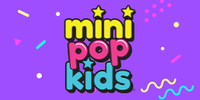Imagine finding out that the Bible is only available in Klingon, a fictional language from the Star Trek TV show. That is what it’s like for individuals in the deaf community who want to experience the Bible.
Even though both deaf and non-deaf people ‘speak English’ there is still a language barrier between the two groups.
“Deaf and non-deaf have different cultures and different societal groups and therefore there are barriers that are a challenge to traverse,” says Pastor Barbara Easter. Easter oversees the deaf ministry at Calvary Temple church in Winnipeg where the first language is American Sign Language (ASL).
But a restorative mission is taking place within the deaf community.
The non-profit Deaf Bible Society (DBS), and other organizations like it, are breaking down barriers by creating tools that make Christian Scripture available to the deaf community so that they can experience the Bible in their first language.
Ninety-eight per cent of deaf people haven’t been introduced to the gospel, according to the DBS website. But that’s changing since DBS has developed an app to address this issue. The app can be downloaded onto any smartphone and offers video translations in various sign languages.
I reached out to Pastor Easter to ask her how she uses the DBS app within her congregation.
Q: Does your ministry use the DBS app?
A: Yes, our Deaf Fellowship uses the app. A lot of our congregation enjoy using the app to better understand the biblical teachings in their [first] language.
Q: What do you think of how the app works?
A: The community feels that the app makes studying/researching for lessons/teachings a lot easier than using methods such as a dictionary. Groups are benefitting from the app.
Q: Do you think there is a difference between reading written Scripture as compared to having someone present it to you in ASL?
A: It is imperative that our congregation is receiving the good news in their [first] language. It allows for an easier transition to the written form and members can then understand the Bible more comfortably.
Q: What do you think about this app potentially allowing for greater connection within the deaf community?
A: I agree that this app has a great potential in allowing for greater connection. Young people have technology at their fingertips. This app makes it more appealing to that generation.
Q: How useful do you think this app would be in connecting the gospel to deaf believers (and potentially non-believers)?
A: When asking Deaf believers, they felt it was very useful in helping connect to the gospel. I’m unaware if non-believers are using this app; however, information can be passed along to friends and family through Facebook or other social media means to share about the app. In sharing the information, it allows Deaf members to network more easily and share information.
When people feel understood they experience a great sense of self-worth and value. By creating and publishing sign language translations, DBS gives agency back to a marginalized community made up of the hearing impaired and non-hearing.
That sense of worth is what organizations like DBS offer our fellow Christian communities who experience life in a different way.
Felicia McAlpine is a Communications student at Canadian Mennonite University in Winnipeg.









